For decades, sobriety was something people rarely talked about in public—let alone celebrated online. Recovery often happened behind closed doors, weighed down by stigma, shame, and silence. But that’s changing fast. Thanks to a growing wave of sober influencers, sobriety is stepping into the spotlight.
These creators are using social media platforms to share their journeys, fight stigma, and build community. They’re proving that recovery doesn’t have to look like rock bottom—and that a sober life can be joyful, creative, and full of meaning.
Let’s explore how sober influencers are changing the narrative online and inspiring others to rethink their relationship with alcohol and substance use.
The Rise of Sober Influence
Social media has always shaped trends—fashion, food, fitness. Now, it’s helping redefine wellness to include mental health and substance-free living. Sober influencers are creators who openly share their experiences with sobriety, whether it’s from alcohol, drugs, or both. Many also talk about related topics like anxiety, trauma, self-worth, and mental clarity.
Unlike traditional recovery stories, which often focus on extremes, these influencers highlight the everyday benefits of sobriety—from better sleep to deeper relationships. And they’re reaching millions of followers who may not feel ready to quit, but who are curious about a different way of living.
According to Google Trends, searches for “sober curious” have more than doubled since 2018, reflecting a broader shift in how people think about alcohol.
Why Online Sobriety Content Matters

The online world offers something traditional support systems can’t always provide: instant connection, relatability, and accessibility. For people who feel alone in their struggles, seeing someone just like them—talking about sobriety in a real, unfiltered way—can be life-changing.
1. They Normalize Sobriety
Sober influencers make it clear: You don’t have to be an “alcoholic” to want a sober life. You don’t need to hit rock bottom to make a change. Sobriety is a valid and empowering choice for anyone.
This perspective is especially powerful for people who identify as “sober curious”—those exploring their drinking habits but unsure if they want to quit fully. Influencers help remove the fear and guilt by offering a judgment-free space.
2. They Break Stigma
Addiction and recovery are still widely misunderstood. Influencers help break down harmful myths like:
- “Addiction only happens to weak people.”
- “You have to drink to be social.”
- “Recovery is boring.”
By sharing personal stories, sober influencers show that recovery is courageous, complex, and deeply human.
A 2021 survey by NielsenIQ found that 22% of Americans are actively trying to drink less alcohol, with Gen Z and Millennials leading the movement toward sober or mindful drinking.
3. They Offer Hope and Tools
Sober influencers go beyond storytelling. They often share coping strategies, book recommendations, journal prompts, and mental health tips. Their posts are both personal and practical.
Many also use their platforms to promote:
- Therapy and peer support
- Trauma-informed healing
- Self-love and body acceptance
- Alcohol-free events and products
In this way, they become virtual mentors—not just influencers, but guides.
Notable Sober Influencers to Watch
Here are just a few creators leading the charge:
1. Tawny Lara (@tawnymlara)
Known as “The Sober Sexpert,” Tawny blends recovery with open conversations about sex, relationships, and emotional wellness. She co-hosts the Recovery Rocks podcast and is a fierce advocate for sober empowerment.
2. Millie Gooch (@sobergirlssociety)
Millie founded the Sober Girl Society, a UK-based online community for sober and sober-curious women. Her page is full of uplifting quotes, education, and resources for navigating social life without alcohol.
3. Tim (@sobergayguy)
Tim shares his LGBTQ+ recovery journey with honesty and humor. His content focuses on community, therapy, dating sober, and staying grounded in identity while healing.
4. Laura McKowen (@laura_mckowen)
Author of We Are the Luckiest, Laura offers deep insights on recovery, shame, motherhood, and self-trust. Her writing is raw, compassionate, and resonant with people at all stages of recovery.
5. Amanda E. White (@therapyforwomen)
A licensed therapist and author of Not Drinking Tonight, Amanda blends clinical expertise with real-life tools for managing triggers, boundaries, and emotional regulation.
These voices reflect the diversity of modern recovery—across genders, backgrounds, and beliefs.
The Community Impact of Sober Influence
What makes sober influencers so powerful is the sense of community they build. People in recovery often struggle with loneliness, especially if their friends or family don’t understand their journey.
Online sober spaces offer:
- Connection without judgment
- Daily inspiration and support
- Access to global recovery communities
- A chance to feel seen, even in silence
For those who can’t attend traditional meetings or who prefer anonymity, these virtual platforms become lifelines.
The nonprofit Tempest found that people in digital recovery programs were 60% more likely to stay engaged compared to traditional treatment paths (Tempest, 2021).
Challenges of Being a Sober Influencer
While their work is impactful, sober influencers also face pressure. They are often expected to be always strong, always recovered, and never triggered—which isn’t realistic.
Many openly discuss:
- Burnout from oversharing
- Fear of relapse and public scrutiny
- Harassment from trolls or skeptics
- Pressure to monetize or perform
That’s why boundaries, peer support, and authenticity are essential for influencers in this space.
How You Can Support or Start Sober Influence
Whether you’re in recovery, sober curious, or an ally, here’s how to engage with the sober influencer movement:
1. Follow and Share Their Content
Amplify sober voices by following, liking, and sharing their posts. This helps reduce stigma and reach people who might need it most.
2. Join the Conversation
Use hashtags like #sobercommunity, #sobercurious, or #thisisrecovery to connect with others and share your own reflections.
3. Start Your Own Page
You don’t need a huge platform. Even sharing your experience with one person can make a difference. Your voice matters.
4. Respect Their Journey
Remember that recovery is deeply personal. Avoid comparing your path or expecting influencers to have all the answers. They’re still growing, too.
Final Thoughts
Sober influencers are doing more than posting—they’re changing lives. With every story, they help dismantle shame, offer support, and remind others that recovery is not just about quitting something—it’s about starting something better.
Thanks to their work, the conversation around sobriety is more inclusive, empowering, and hopeful than ever. Whether you’re following along or sharing your own story, you’re part of this movement.
Because the truth is, sobriety isn’t the end of fun—it’s the beginning of freedom.
“How to Navigate Social Media During Early Sobriety” or “Finding Digital Community in Recovery.”



